
SOFT COMPUTING
Scope & Guideline
Unleashing the Power of Genetic Algorithms and Beyond
Introduction
Aims and Scopes
- Fuzzy Logic and Systems:
Research on fuzzy logic theories, methodologies, and their applications in various fields such as control systems, decision making, and data analysis. - Neural Networks and Deep Learning:
Exploration of neural network architectures, deep learning models, and their applications in image processing, natural language processing, and predictive analytics. - Evolutionary Algorithms:
Development and application of evolutionary algorithms, including genetic algorithms and swarm intelligence techniques for optimization problems. - Multi-Criteria Decision Making (MCDM):
Studies focusing on MCDM methodologies, particularly those incorporating fuzzy sets, intuitionistic fuzzy sets, and other soft computing frameworks. - Data Mining and Knowledge Discovery:
Research on data mining techniques, including clustering, classification, and feature selection, leveraging soft computing approaches. - Applications in Engineering and Industry:
Practical applications of soft computing methods in engineering, manufacturing, healthcare, and environmental management, addressing real-world challenges.
Trending and Emerging
- Explainable AI (XAI):
An increasing number of studies focus on developing explainable models that enhance transparency and interpretability in AI systems, especially in sensitive applications like healthcare and finance. - Hybrid Models:
Research integrating multiple methodologies, such as combining deep learning with fuzzy logic or evolutionary algorithms, is trending as it offers improved performance and robustness in various applications. - Sustainability and Environmental Applications:
There is a noticeable rise in research addressing sustainability challenges through soft computing methods, particularly in energy management, waste management, and resource optimization. - Healthcare Applications:
Soft computing techniques are increasingly applied in healthcare for diagnostics, treatment planning, and patient monitoring, reflecting a growing intersection between technology and health sciences. - Internet of Things (IoT) and Smart Systems:
Research exploring the integration of soft computing methods in IoT applications, focusing on smart environments, predictive maintenance, and real-time data analysis, is on the rise.
Declining or Waning
- Classical Optimization Techniques:
There has been a noticeable decline in the number of papers focusing on traditional optimization techniques, such as linear programming, as researchers increasingly favor soft computing and heuristic approaches. - Basic Statistical Methods:
Research that relies solely on basic statistical methods for analysis has become less prominent, with a shift towards more complex, data-driven methodologies that incorporate machine learning and soft computing. - Standard Machine Learning Algorithms:
The frequency of studies dedicated to standard machine learning algorithms, without the integration of soft computing techniques or advanced ensemble methods, appears to be waning as more researchers seek innovative approaches.
Similar Journals
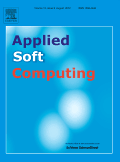
APPLIED SOFT COMPUTING
Advancing the frontiers of soft computing research.Applied Soft Computing is a premier international journal published by Elsevier, dedicated to advancing the field of soft computing in various applications. With an ISSN of 1568-4946 and E-ISSN of 1872-9681, it has established itself as a leading resource with a commendable impact factor and significant importance in its field. As of 2023, it ranks in the Q1 category of Software in Scopus, boasting a rank of 25 out of 407 journals in Computer Science, Software, representing the 93rd percentile among peers. The journal's primary objective is to publish high-quality, innovative research articles that explore soft computing methodologies and their applications across diverse domains, fostering interdisciplinary collaboration and advancing technological solutions. Based in the Netherlands, at Radarweg 29, 1043 NX Amsterdam, it serves as a vital platform for researchers, professionals, and students eager to contribute to and stay informed about the latest developments in soft computing.
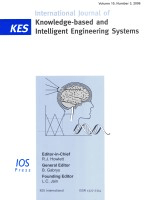
International Journal of Knowledge-Based and Intelligent Engineering Systems
Connecting Minds to Shape the Future of Intelligent SystemsThe International Journal of Knowledge-Based and Intelligent Engineering Systems, published by IOS PRESS, serves as a vital platform for scholars and practitioners involved in the fields of Artificial Intelligence, Control and Systems Engineering, and Software Development. Founded in 2004 and continuously publishing through to 2024, this journal stands out with its comprehensive coverage of innovative methodologies and applications that leverage knowledge-based systems. Although currently listed in Q4 for Artificial Intelligence and Q3 for Control and Systems Engineering, it features an increasing trajectory in the scientific community, as indicated by its rankings in Scopus—which reflects the growing importance of intelligent engineering systems in contemporary research. With a commitment to disseminating cutting-edge research without open access constraints, this journal is essential for those seeking to understand and contribute to advancements in intelligent systems. Join a global community of researchers and industry leaders by engaging with the latest findings shared in this well-regarded journal.
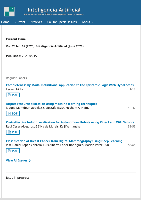
Inteligencia Artificial-Iberoamerical Journal of Artificial Intelligence
Fostering Collaboration in Artificial Intelligence Development.Inteligencia Artificial-Iberoamerican Journal of Artificial Intelligence, published by the ASOC ESPANOLA INTELIGENCIA ARTIFICIAL, serves as a pivotal platform for disseminating cutting-edge research in the burgeoning fields of artificial intelligence and software development. Established in 1997 as an Open Access journal, it ensures broad accessibility to its scholarly content, thus fostering collaboration and knowledge exchange amongst researchers, professionals, and students across the globe. Based in Valencia, Spain, the journal currently operates within a significant timeline spanning from 2004 to 2010 and 2012 to 2024, enabling continual contributions to the academic discourse. Although it holds a Q4 quartile ranking in both the Artificial Intelligence and Software categories and a notable yet competitive Scopus ranking among its peers, the journal remains committed to advancing the understanding and application of sophisticated AI methodologies. As it continues to embrace innovative research, this journal stands as a crucial reference point for those keenly navigating the complexities of artificial intelligence in a rapidly evolving digital landscape.

IEEE Computational Intelligence Magazine
Bridging Theory and Application in Computational IntelligenceIEEE Computational Intelligence Magazine, published by the esteemed IEEE-INST ELECTRICAL ELECTRONICS ENGINEERS INC, is an essential resource for researchers and professionals in the fields of Artificial Intelligence and Theoretical Computer Science. With a robust Q1 ranking in both categories for 2023, this magazine stands out as a leader in disseminating cutting-edge research and innovative applications within computational intelligence. As an invaluable conduit for knowledge, it covers a diverse range of topics, including but not limited to machine learning, neural networks, and data mining. The magazine is particularly recognized for its interdisciplinary approach, bridging gaps between theory and application while contributing to advancements in technology and society. Although it does not offer open access, the insights provided are critical for staying at the forefront of this rapidly evolving discipline. Join a community of like-minded scholars and practitioners by exploring the latest findings and trends published from 2006 to 2024, operating from its headquarters at 445 Hoes Lane, Piscataway, NJ, United States.
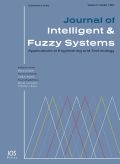
JOURNAL OF INTELLIGENT & FUZZY SYSTEMS
Innovating the Intersection of Theory and PracticeJOURNAL OF INTELLIGENT & FUZZY SYSTEMS is a premier publication dedicated to advancing the field of artificial intelligence, fuzzy systems, and related engineering disciplines. Published by IOS PRESS, this journal plays a vital role in disseminating innovative research and methodologies that push the boundaries of knowledge from its inception in 1993 through 2024. With an impact factor underscoring its significance, it maintains a strong reputation for quality and rigor, achieving Q3 in Artificial Intelligence and Q2 in Engineering (miscellaneous) as reported in 2023. Researchers can access invaluable insights into current trends and applications, making it an essential resource for professionals and scholars alike. The journal welcomes contributions that bridge theoretical advancements and practical implementations, fostering a community of interdisciplinary collaboration. Situated in the heart of the Netherlands, the JOURNAL OF INTELLIGENT & FUZZY SYSTEMS is committed to enhancing understanding in the realms of mathematics, statistics, and probability, with Scopus rankings reflecting its competitive edge across various fields.

International Journal of Fuzzy Logic and Intelligent Systems
Unveiling the Future of Fuzzy Logic ApplicationsInternational Journal of Fuzzy Logic and Intelligent Systems, ISSN: 1598-2645, is a prestigious journal published by the Korean Institute of Intelligent Systems, dedicated to advancing the fields of Artificial Intelligence, Computational Theory and Mathematics, Computer Science Applications, Logic, and Signal Processing. Established to foster interdisciplinary research, this journal has quickly established its reputation, reaching a respectable Q3 quartile ranking across multiple categories in 2023. It serves as a vital resource for researchers, professionals, and students, offering insights into cutting-edge methodologies and innovative applications of fuzzy logic and intelligent systems. With a focus on disseminating high-quality research, the journal attracts contributions that drive the evolution of intelligent technologies and their practical implications. Published from South Korea, the journal is positioned to impact the global community, facilitating a deeper understanding of intelligent systems in various domains.
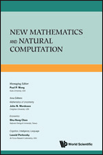
New Mathematics and Natural Computation
Exploring the Fusion of Mathematics and Nature's LogicNew Mathematics and Natural Computation, published by World Scientific Publishing Co Pte Ltd, is a pivotal journal in the realms of applied mathematics and computational theories, catering to a diverse audience of researchers, professionals, and students. With an ISSN of 1793-0057 and E-ISSN 1793-7027, this journal serves as a critical platform for disseminating innovative research and methods that intertwine mathematical theories with natural computation processes. Operating from Singapore, it emphasizes accessibility and collaboration in advancing interdisciplinary knowledge, despite its current Q4 rankings across relevant categories such as Applied Mathematics and Human-Computer Interaction—highlighting the journal’s commitment to growth and improvement in a competitive publishing landscape. As a source of insightful findings and applications in mathematics and computer science, it invites contributors to explore the dynamic intersections between these fields and foster academic dialogue. Researchers aiming to engage with cutting-edge advancements will find this journal instrumental for their work from its inaugural issue in 2012 through its projected publications into 2024.

JOURNAL OF MULTIPLE-VALUED LOGIC AND SOFT COMPUTING
Exploring the Frontiers of Soft Computing.Journal of Multiple-Valued Logic and Soft Computing, published by Old City Publishing Inc, is a dedicated forum for advancing the fields of logic and soft computing. Since its inception in 2003, this journal has positioned itself as a valuable resource for researchers, professionals, and students interested in the complex interplay between multiple-valued logic systems and computational methodologies. With a broader reach into theoretical computer science, the journal is categorized in the Q4 quartiles across key areas, showcasing its role in disseminating relevant research despite its current position. This peer-reviewed publication silos essential discussions and breakthroughs that serve as a foundation for ongoing innovation in logic and computing theories. Though not currently open access, the journal continues to attract critical contributions that underscore its commitment to advancing knowledge in mathematical logic and software development through its effective symposium-like format, promoting collaboration among various stakeholders in the scientific community.

Intelligent Data Analysis
Catalyzing Innovation in the Realm of Data IntelligenceIntelligent Data Analysis is a highly regarded journal published by IOS Press, specializing in the fields of Artificial Intelligence, Computer Vision, and Pattern Recognition. With its ISSN 1088-467X and E-ISSN 1571-4128, the journal has been a cornerstone of scholarly communication since its inception in 1997, serving as a vital resource for researchers, professionals, and students engaged in advancing methodologies and applications in intelligent data analysis. The journal maintains its significance with impressive Scopus ranks, indicating its notable position within the academic community. Although currently not an Open Access journal, Intelligent Data Analysis offers a wealth of insights and findings, encouraging collaboration and knowledge exchange among its readership. With an impact factor reflective of its rigorous selection processes, the journal traverses a broad range of topics, contributing to ongoing discussions and innovations in its field. As the journal looks toward shaping future research until 2024 and beyond, it remains a pivotal platform for disseminating cutting-edge research and fostering academic inquiry.
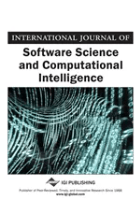
International Journal of Software Science and Computational Intelligence-IJSSCI
Exploring New Dimensions in Software Engineering and AIInternational Journal of Software Science and Computational Intelligence (IJSSCI) is a prominent academic journal published by IGI Global, dedicated to advancing the fields of software science and computational intelligence. With its ISSN 1942-9045 and E-ISSN 1942-9037, IJSSCI offers a platform for researchers, practitioners, and students to disseminate innovative research findings, theoretical advancements, and practical applications in areas such as algorithm development, machine learning, and software engineering. Although the journal currently does not operate under an open access model, its rigorous peer-review process ensures high-quality publications that contribute significantly to the academic discourse. Based in Hershey, PA, IJSSCI is recognized for its commitment to fostering collaboration among professionals in the technology and computer science fields, making it an essential resource for those looking to stay at the forefront of software science advancements.